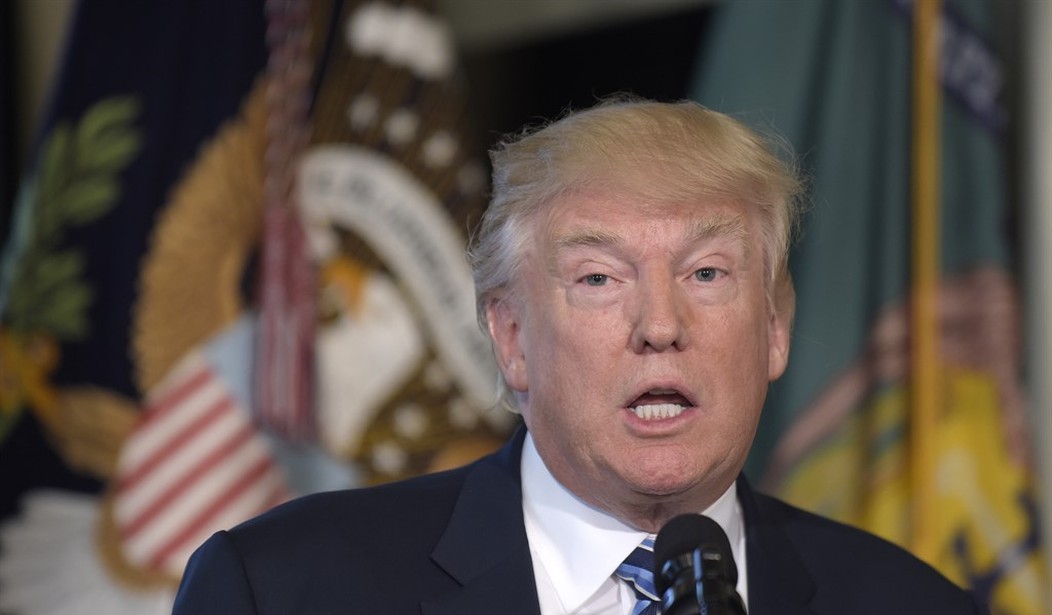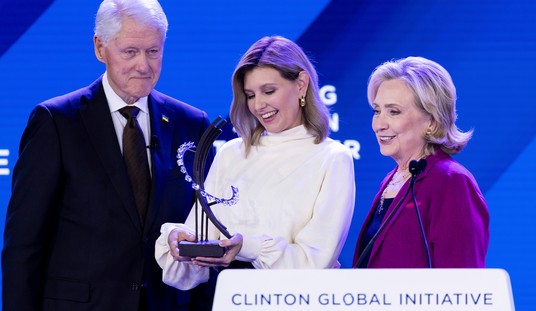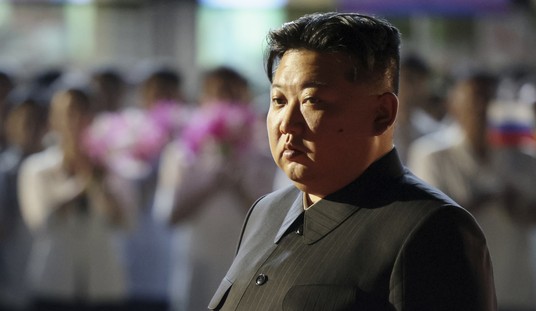Increasingly I wonder if this Lawfare post from March about a “revolt of the judges” against the Trump White House was correct. Traditionally courts show some deference to the president in interpreting laws or orders he’s signed — but what if, due to their suspicions about Trump’s motives, they no longer feel obliged to give the executive branch any benefit of the doubt?
In that case, you’d expect to see many more orders blocked than you would under a different administration. Here’s another one now. Trump’s EO on sanctuary cities will be halted nationwide (temporarily, as this is a preliminary injunction) courtesy of another west-coast judge and Obama appointee.
Orrick cited public comments from Trump and Attorney General Jeff Sessions in concluding that the order appeared intended to sweep more broadly than allowed by federal law. The judge, an Obama appointee, called “not legally plausible” the Justice Department’s arguments that Trump was simply trying to secure compliance with current law.
“If there was doubt about the scope of the Order, the President and Attorney General have erased it with their public comments,” Orrick wrote. “The Constitution vests the spending power in Congress, not the President, so the Order cannot constitutionally place new conditions on federal funds.”
BuzzFeed has a copy of the opinion. Trump’s executive order authorized the Attorney General to freeze federal grant money to any sanctuary city, but under federal law (8 U.S.C. 1373), the DOJ has the power to withhold only three specific grants from noncompliant state jurisdictions. Question: Did the EO overreach by ordering the Justice Department to withhold all federal grants from sanctuary districts or just the three already authorized by statute? The DOJ tried to argue that it was the latter, insisting that the AG could only withhold money to the extent allowable by law, but the court read the order much more broadly. (What’s the point of an executive order, the court reasoned, that tells Jeff Sessions he can withhold money to sanctuary cities that he’s already empowered to withhold under 8 U.S.C. 1373?) Trump was trying to get the DOJ to withhold all federal grants from sanctuary jurisdictions, the court concluded, and he can’t do that under the Constitution. If Congress has appropriated money without conditions, the president can’t impose those conditions himself:
This is the key paragraph in the order blocking Trump's sanctuary city EO: pic.twitter.com/dtO5ZKQ01F
— Gabriel Malor (@gabrielmalor) April 25, 2017
Yes, that’s an Obama appointee citing the Tenth Amendment for why the head of the executive branch can’t push states or cities around. But wait, said the DOJ — even if it’s true that the executive order attempted to block all federal funding for sanctuary cities, not just the grants under Section 1373, none of the jurisdictions that filed this lawsuit have been targeted (yet). How can they have standing to sue if they haven’t actually lost any money? Because, said the court, Trump and his deputies have said things in interviews to suggest that they will be targeted, and that’s good enough for a preliminary injunction:


This marks the second time a Trump executive order has been blocked based partly on comments made by Trump or his aides outside the record, whether on the campaign trail, to the media, or so on. The original travel ban order was blocked on grounds of religious discrimination citing Trump’s early support as a candidate for a temporary global ban on Muslim visitors to the U.S.; when the White House rewrote the order to make it more lenient and to remove a preference for non-Muslim refugees, another court cited things Trump has said in the past to support a finding of religious bias anyway. That’s a highly dubious means of inferring the purpose of a legal instrument, one which, as Alan Dershowitz noted, would lead to a situation in which the same executive order could be constitutional if signed by Barack Obama but unconstitutional if signed by Donald Trump. You’re seeing similar logic here in blocking enforcement of the sanctuary-city order against plaintiffs who haven’t actually been targeted for enforcement yet. The Lawfare piece I mentioned up top flagged courts’ willingness to scrutinize Trump’s statements as a “tell” that maybe they weren’t applying the same standards of review to him as they have to other presidents:
This, we suspect, is the true significance of all of the references in both district court opinions to the many statements made by Trump and his aides about the Muslim ban and the true purpose of the policy effectuated in both [travel ban] orders. These references present, of course, as discussions of whether there is truly a secular purpose to the policy in an Establishment Clause analysis using the Lemon test. But there’s at least a little more going on here than that. The lengthy recitations of large numbers of perfectly objectionable presidential statements about Muslims coexist with a bunch of other textual indicia showing not merely that the judges doubt Trump’s secular purpose but that they doubt the good faith of his purpose at all—indeed, that they suspect that he is simply lying about his own motivations.
He got no benefit of the doubt in the travel-ban cases about his motive and he gets no benefit of the doubt in today’s sanctuary-city case in terms of which jurisdictions he might target and which grants, specifically, he’d seek to have the Attorney General withhold. Rather, thus far in his 95 days as president, lower courts seem to be grasping for reasons to halt his policies and willing to dig through whatever material they can find, including offhand comments made on “The O’Reilly Factor,” to support their conclusion. I wonder why.
Even so, we’re left here with a strange result in which, although the order has been blocked, the Attorney General still enjoys the same power to cut off funds to sanctuary cities as he claimed to have before the court. Remember, the DOJ argued that Trump’s EO only applied to the three grants under Section 1373 that can already be withheld from sanctuary jurisdictions, not to all federal grants. The court disagreed, but even if the Trump administration had won, it would mean that Sessions would be limited by his own reasoning to just those three grants in punishing sanctuary districts. And because he’s been authorized by statute to withhold those three, he can still withhold them notwithstanding the court’s decision today. In a sense, the order doesn’t matter. Only if you thought, or hoped, that it expanded Sessions’s power to withhold all sorts of federal money from sanctuary cities is it a true defeat. And not even the DOJ claimed that.









Join the conversation as a VIP Member